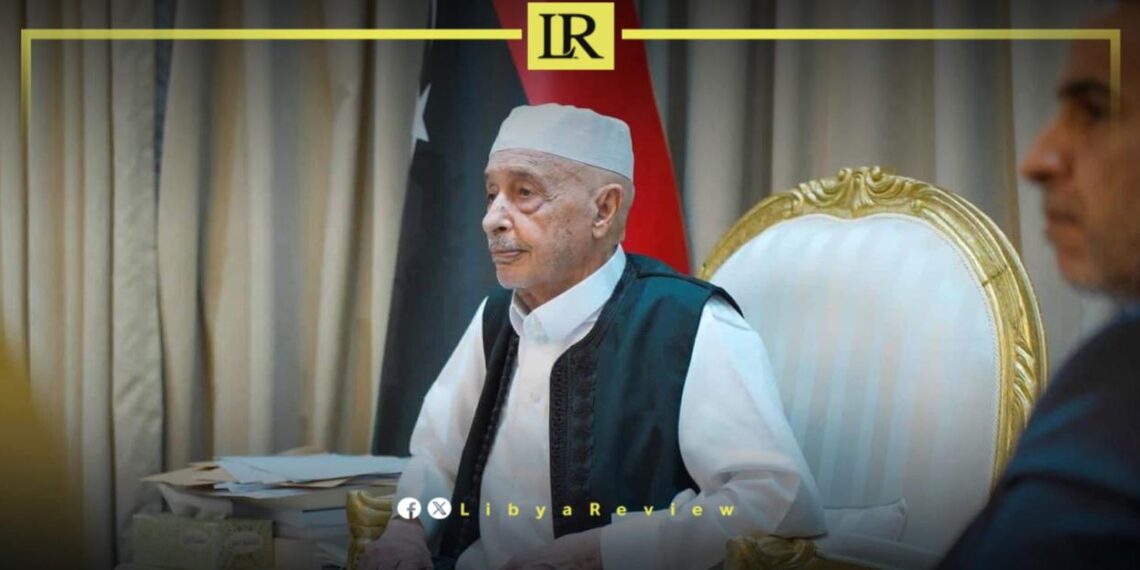In a meeting with European Union Ambassador to Libya, Nicola Orlando, Speaker of the Libyan House of Representatives Ageela Saleh reaffirmed the parliament’s commitment to all requirements aimed at holding elections. This includes the issuance of the 13th constitutional amendment and the enactment of presidential and parliamentary election laws to ensure that elections are conducted without exclusion or marginalization, in accordance with the will of the Libyan people.
Saleh emphasized that the solution to Libya’s crisis lies in conducting presidential and parliamentary elections. He called for allowing Libyans the freedom to choose in free and fair elections, and for the formation of a unified government across the country to organize and oversee these elections.
During their discussions in Al-Qubbah, Saleh and Orlando also reviewed the latest developments in Libya and explored ways to end the country’s ongoing crisis.
Previously, Saleh urged Libyans to cooperate and unite, to end disputes, and encouraged Libyan parties to work together towards building a state of institutions in Libya.
Ageela Saleh: Army Liberated Libya from Terrorism
In the fourth general session of the Arab Parliament, Ageela Saleh highlighted the parliament’s efforts to advance and move past the past, continuing the process of reconstruction. He underscored the role of the national army in cleansing the country of infiltrating terrorist groups and outlaws, according to the media office of the Libyan House of Representatives.
Libya has been in chaos since a NATO-backed uprising toppled longtime leader Muammar Gaddafi in 2011. The county has for years been split between rival administrations.
Libya’s economy, heavily reliant on oil, has suffered due to the ongoing conflict. The instability has led to fluctuations in oil production and prices, impacting the global oil market and Libya’s economy.
The conflict has led to a significant humanitarian crisis in Libya, with thousands of people killed, and many more displaced. Migrants and refugees using Libya as a transit point to Europe have also faced dire conditions.
The planned elections for December 2021 were delayed due to disagreements over election laws and the eligibility of certain candidates. This delay has raised concerns about the feasibility of a peaceful political transition.
Despite the ceasefire, security remains a significant concern with sporadic fighting and the presence of mercenaries and foreign fighters. The unification of the military and the removal of foreign forces are crucial challenges.


